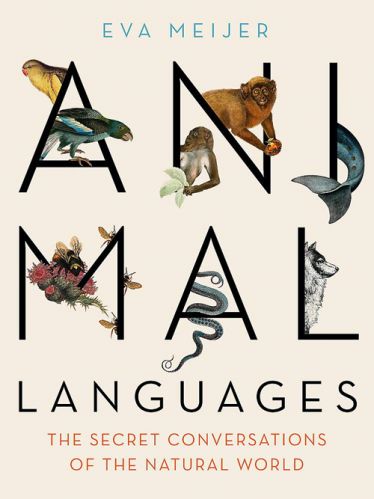Books
Animal Languages

Animal Languages by Eva Meijer, translation: Laura Watkinson
(John Murray, 2019, 288 pages)
The secret conversations of the living world
Animals use far more elaborate and complex language than we think. They chat, gossip, mourn, rhyme, speak in dialects and make jokes. Whales sing a different series of songs each season, which rhyme and are picked up by other whales in passing, making them ‘hits’. Some species of bird have dialects that differ from one region to the next, and the birds that live on the regional boundaries are bilingual.
Eva Meijer combines her field of study, philosophy, with her love of animals. That combination of academic interest and personal passion has produced a lucid and inspiring plea to listen more carefully to animals. She presents a history of philosophical thought about animals and language, addressing questions such as: when can you call communication a language? And what exactly is a language, anyway?
Descartes decided that animals do not have a soul because they do not have rationality, and the best proof of rationality is the power of speech. Meijer shows that every species of animal speaks in its own way. Animals even have grammar: dolphins in their clicks, cephalopods in the colour patterns of their skin, and whales in the structure of their songs. There are some from whom humans could learn lessons about the efficient use of language: prairie dogs alert each other by a single call to the height and proximity of a potential interloper, even including the colour of their clothes and what they are carrying. This book makes clear that animals speak, not just by instinct but for social, emotional and creative reasons.
Along with ideas from Aristotle, Descartes and Wittgenstein, Meijer takes Heidegger’s beliefs about language as her guide: language gives us insight into the world around us and helps us to shape it. This notion is central to Animal Languages. Studying the languages of animals gives us a starting point for new relationships with them. Meijer argues that we should enter into conversation with animals, rather than making them the object of study.
